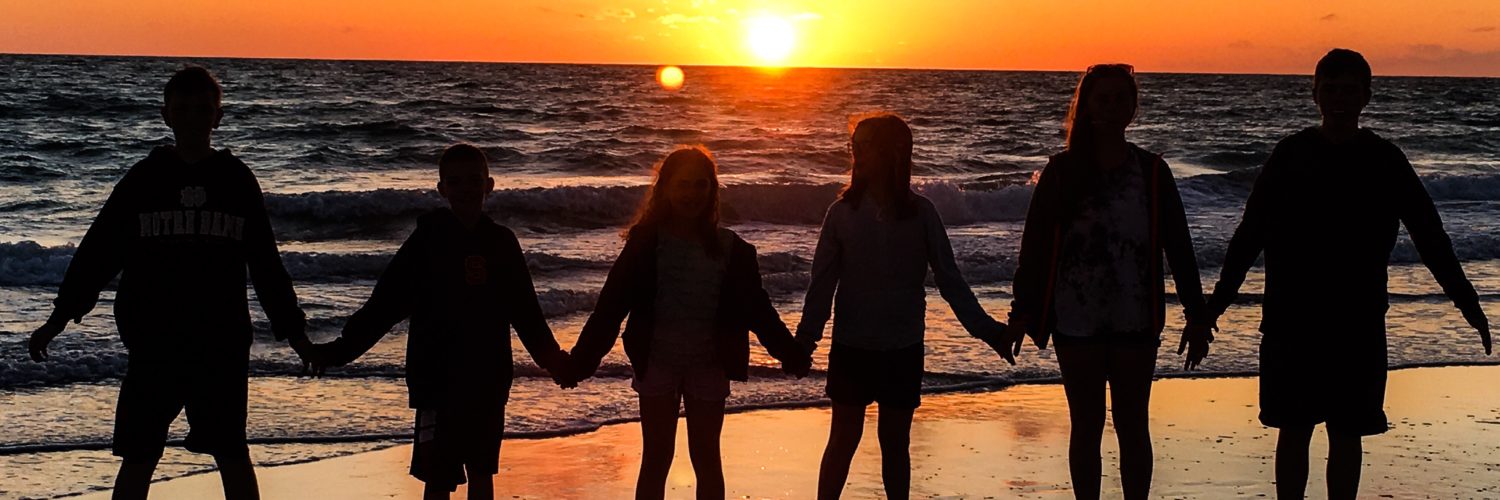You have found this article because you are contemplating an adoption plan for your baby or are thinking of building your family through adoption. Understanding the ins and outs of adopting a child in Florida is the first step on this adoption journey. You may just be looking for information on adopting a child from Florida without any plan, that’s okay too. Understanding all of your options and doing your research is the best way to make the best decision for you and your family.
A wonderful starting point when researching adopting a child in Florida is to review the rich information provided in Adoption.com’s resource article on adoption in Florida and this article on Florida adoption. Both articles offer plenty of excellent information on state laws and regulations for adopting a child in Florida, lists of adoption agencies, statistics on adoption in the state, and other resource links.
1. Who Can Adopt a Child in Florida?
So, where do you begin? As you start your research process on adopting a child in Florida, the first step is to understand who exactly is eligible to adopt. This is important information, especially for hopeful adoptive parents praying to build their family through adoption and those who want to better understand if they are eligible to adopt a child in Florida. It is also a great place to begin for expectant parents contemplating or making a decision regarding with whom they can place their baby for adoption. To be eligible to adopt a baby in Florida, the hopeful adoptive parent can be married or single. According to Florida adoption laws, single adults or married couples may jointly adopt a child in Florida. Florida once had some prohibitive measures against LGBTQ individuals and same-sex couples adopting a child in Florida, but those rules have since been overturned by state courts in 2010. Now, these individuals and families are also considered eligible to adopt as well.
Home Studies
Every hopeful adoptive parent who wishes to adopt a child in Florida must be approved by a licensed social worker through a Florida adoption home study. The home study is a long document that basically determines whether a couple or individual is fit, according to state law, to adopt a child in Florida. The report, completed by a licensed social worker in the state of Florida, will include information on the health of the adoptive couple or individual, a medical exam, and health history that will disclose any medications the family members use, past surgeries, and/or health issues affecting the family members. There are some circumstances that may preclude the person from adopting a child in Florida. Your social worker can better explain what requirements you must meet to adopt by your agency and the state of Florida. The home study will also include financial records and employment history.
Background Checks
To meet eligibility requirements, the screening process will also include background checks for all adults in the home in each country in which they lived as well as a fingerprint scan done by the FBI. The family, including children of a certain age, will be interviewed in the home. There will be letters of recommendation from friends, pastors, and children’s teachers. These screenings will also include background checks and FBI livescan fingerprint check for every adult in the home and every child in the home over the age of 12. This process may also involve interviews with their friends, children’s teachers, neighbors, and employers.
After the background checks are completed, there may be issues in the background check that the social worker or agency will need to discuss further with the adult in the home. Minor traffic violations are usually accepted; however, other crimes will need to be discussed with the social worker and certain indiscretions will preclude you from adopting. These are important questions to discuss with the adoption agency you use at the start of the process if you do have any arrests or convictions in your past.
Other Requirements
Most adoption agencies and adoption attorneys also have their own adoption requirements for married couples and singles hoping to adopt a child in Florida. This may include requirements regarding how many times the individual has been divorced or how long the couple has been married. They will also take into account the level of income the family brings in each year and whether it is enough to support all of the individuals in the home, plus another child.
Florida does not have specific laws regarding adoption requirements for a minimum age or adoption age limit for those adopting a child in Florida through private infant adoption or foster care. However, adoption agencies and adoption attorneys facilitating adoptions usually have their own adoption age requirements in Florida.
2. Types of Adoption in Florida
The second thing you need to know about adopting a child in Florida, is there are at least three different types of adoption: Intercountry adoption (or sometimes called international adoption), private domestic adoption, and foster care adoption.
As an expectant parent, if you decide to make an adoption plan for your baby, you will be completing a private infant domestic adoption. If you are a hopeful adoptive parent, you will be deciding between all three options for building your family through adoption. Each has different rules, regulations, costs and timelines. Doing your research about each type when you are considering adopting a child in Florida is important.
3. International Adoption in Florida
It may seem like an oxymoron to be researching adopting a child in Florida through intercountry adoption, but as a hopeful adoptive parent who looks to adopt a child internationally, it is important to understand how to start the process on the right foot.
If you decide that you are interested in adopting a child in Florida through international adoption, the best adoption agencies near you in the state of Florida for international adoptions will meet certain criteria or are accredited if you plan to adopt from a Hague Convention Country. Hopeful adoptive parents may go into the adoption process knowing exactly the country they would like to adopt a child from. Other hopeful adoptive parents are open to any country or region of the world. Staying up to date on which countries are open or closed to intercountry adoptions is important. The adoption travel site on the United States State Department travel website has useful information on each country open and closed to adoption in Florida.
4. Private Infant Domestic Adoption in Florida
Families who wish to build their family through adoption by adopting a child in Florida or expectant parents who are considering creating an adoption plan for their child do so through a private infant domestic adoption in the state of Florida. Private infant domestic adoptions involve the expectant parents or birth mother creating an adoption plan for the child and deciding on the hopeful adoptive family for their baby. When working with an adoption agency in Florida, most adoption agencies have a number of hopeful adoptive parents with whom they are working who are looking to build their family through adoption. Gladney Center for Adoption is one agency in the state of Florida who works with both adoptive parents and expectant mothers, but there are many agencies in the state. The opposite is also true, if you are a hopeful adoptive couple or parent, the adoption agency with whom you work will likely also be working with birth mothers and fathers who are developing an adoption plan for their child.
5. Other Types of Adoption in Florida
The other types of adoption in Florida are stepparent adoption and adopting a child in Florida from foster care.
Florida allows stepparents to adopt their stepchildren according to certain rules, regulations, and procedures. The stepparent wishing to adopt must consent to the adoption and file a sworn petition for adopting a child in Florida. A judgment terminating the other biological parent’s rights to the child or consent will be included. Children over the age of 12 can consent.
Adopting a child in Florida from the foster care system is a different process. A child who is unable to return to his or her birth family for various reasons may be eligible for adoption in the state of Florida. Many children eligible for adoption in Florida are older children and may be a part of a sibling group who wish to be adopted together. A social worker can explain more of the details regarding adopting a child in Florida through foster care.
6. Adoption Agencies in Florida
This is a lot of information on adopting a child in Florida. You may be wondering with all of this information, where do you start? A great place to begin is to research Adoption agencies in Florida. This article provides a wonderful list including a full directory of all adoption agencies in the state of Florida and the United States of America. Whether you feel pretty certain of your decision to build your family by adopting a child in Florida, you are certain of your decision to create an adoption plan for your baby, or you are still in the beginning stages of gathering information on all of your options, adoption agencies or adoption centers are a great starting point.
There is no pressure or commitment to work with an agency at the onset of the process. Deciding which adoption agencies are best to reach out to to get more information can seem like an overwhelming step to take; however, narrowing your list of agencies and centers based on ones located in Florida is a good start. An agency like Gladney who specializes in both birth parent and adoptive parent resources for adopting a child in Florida is very helpful. Many individuals or families begin the adoption journey for the first time with the misconception that all adoption centers or agencies are identical. This is not true, so do your homework and ask the right questions to find an adoption service provider that is best for you.
7. Finalizing an Adoption in Florida
Once you have made your decision regarding adopting a child in Florida or placing your baby for adoption in Florida there are important steps on the journey to finalization. As a birth parent, you will work with your adoption agency or adoption attorney to either begin the process of finding an adoptive family for your child or, if one is already identified, working with them through the regulations and legal steps in the process toward finalization.
Pre-Placement
The process unfolds once an adoptive family and birth parents have been matched, a home study is completed, and the prospective adoptive parents are approved for adoption in the state of Florida. The adoption agency or adoption attorney will work with both the adoptive parents and birth mother to determine what birth mother expenses will be covered by the hopeful adoptive parents. Florida law permits hopeful adoptive parents to pay the actual living expenses for the birth mom throughout her pregnancy and up to six weeks following birth of the baby if the birth mom is disadvantaged. Your agency can help you determine what requirements you must meet to receive reimbursement for expenses if you are a birth mother.
These birth mom expenses usually include medical bills received during the pregnancy and post-partum period; any therapy or counseling for the adoption; potentially rent payments; gas, water or electric bills; maternity clothes; and groceries. Your adoption agency will be with you during each step of this process and help you in communication with the other parties in the adoption. The agency assists with legal paperwork and ensures you do each step properly.
The Birth
At the end of the birth mother’s pregnancy, when the birth mom is in labor with the baby, the adoption service provider (either agency or attorney) will let the prospective adoptive parents know labor has started if the expectant mother has not already.
After the birth, there are various steps in completing the adoption consent paperwork by the birth mother to finalize the adoption inFlorida. Florida law states that the adoption consent or relinquishment paperwork can not be signed by the birth mother any sooner than 48 hours after delivery unless the birth mother is being discharged earlier by the hospital or birthing center for various reasons. If a birth mother has a c-section, the wait may be slightly longer than 48 hours to ensure she is free of any medication or pain. The baby is legally the birth parents’ child until the birth mother signs the adoption consent paperwork. The birth father can sign the consent paperwork at any time during the pregnancy, he does not need to wait until after the birth.
Post-Placement
Once the baby is placed with his or her adoptive parents, the adoption journey is not completed, it is just beginning. You may have an open or semi-open adoption where you receive or share information about the child and their life. You may have various feelings during these early weeks after the placement and that is okay. Everyone feels different things during each stage of the process of adopting a child in Florida. Educate yourself, surround yourself with a good support system, seek counseling; understand the steps involved and how adopting a child in Florida works. These safeguards will help you take the first step in this beautiful journey.
If you would like to speak confidentially with an adoption professional about your pregnancy options, click here.




